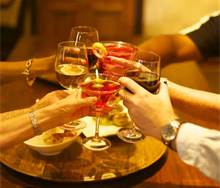I was watching an Independent Lens program on PBS (halfthesky) when I heard one of the women in the program make this remark: "The mothers have not changed. But the children have. They are in school and the mothers are happy". The title of the program was " Turning Oppression into Opportunity for Women Worldwide".
That remark reminded me of my own mother, for that was her story and the story of most women in the villages. Mothers held families together at a huge sacrifice that children did not understand growing up. Even where there was abuse – and that was too common – mothers stuck around for the children. The major source of income for the inhabitants of Kilimanjaro was coffee. Every household owned a plot of land which supported coffee, a cash crop, and various crops for domestic use. Everyone in the household worked in the "shamba" as it is known in Swahili. Come harvest time and only the male – the husband, father – had ownership and control. It was not uncommon that women never knew how much income came from coffee sales. It was not uncommon either that the mothers and children never shared in the income for which they labored all year round. Although the "shambas" gave us most of the produce we needed for food, there was still much that had to be bought in stores: cooking oil, meat, salt. Sometimes we had milk, most times we had to buy it. We had bananas and sweet potatoes, but not rice, and sometimes no corn either. Cash was needed for paraffin for lighting and clothes were produced in factories, not at home. Thus, mothers sold some commodities in the market – or at home – for cash for some necessities. That is how they also provided for their children. Looking back, I now realize how stressful Christmas-time was fro my mother. It was time for new clothes and she took me to the market. She said I could have one shirt, a pair of shorts and a pair of shoes, no more. As I made my selections, I always found something else I wanted, may be a second nice looking shirt, or a sweater. She said no, only one shirt; so I cried in the market, and she was embarrassed. She went through this with each of her children – eight of us – every year until we were able to support ourselves. This was the story of most mothers. You may be wondering: Where were the men and the money from the coffee produce? That story later.
Drinking was a major social activity in the villages on the slopes of Mt. Kilimanjaro. It was an integral component of village social life before it became a problem. Actually the problem was not drinking but not being part of the drinking community.
I started hearing of drinking as a problem in the pastor's sermons. They are the best sermons I still remember, more than fifty years later. I don't recall him preaching about anything else: "There is no house", I can almost hear his voice rising, "with skinny cows, a skinny dog, a skinny cat, and skinny children, like a house ruled by alcohol".
A few years later, I would hear the same condemnation in most speeches made by the then President of Tanzania:"Walevi na wazururaji" - drunks and loiterers - were targeted in most of his speeches.
We made the drinks at home, from bananas and millet. Some people had a "good hand" and their brew was always popular. Indeed, popularity was essential in the general social fabric of village life. If it came from expertise in brewing, it was as good as the school teacher's or even the pastor's.
There were many and varied reasons for brewing and coming together to drink. Well, one of them was for popularity. The more often people came to your house simply to drink the more popular you became. Then there were anniversary celebrations. Local family courts also imposed fines of drinks to a guilty party – mostly a spouse - in a dispute.
Often husbands brought cases to the clan elders against their wives when "they refused to give them bananas". Often too, the wife was found guilty and fined "ten gallons of pombe" to reconcile with her husband and compensation for the elders who sat in judgment.
In short, alcohol was plentiful and for many occasions. There were also "clubs" where anyone who did not want to wait on charity could buy his/her fill.
Two things were considered a problem: Drinking alone and not drinking at all. Also, there was no age limit. As soon as a baby was able to suckle milk, the baby could drink alcohol. (This is in theory only and parents did not generally feed alcohol to infants). Nevertheless, by age six to eight, most children were regularly drinking alcohol.
In those days when I was growing up, alcohol addiction was an unknown concept. That there were "walevi na wazururaji" and many who wasted all their resources – time, talent and treasure – to alcohol was indisputable. The sermons in my local church and the President's admonitions were addressed to people deemed to be morally weak. Most people never saw the problem of alcohol.
Five or six years ago I read a lot that was written about the Episcopal
Church. It was all negative. There were stories about disagreements within the
Episcopal Church and with the Anglican Community. There were churches breaking away from the U.S body and joining other jurisdictions in Canada or as far away as Nigeria.
At that time, if anybody would have asked me if I would become an
Episcopalian I would have thought he/she must have been out of his/her mind.
Some of the stories even suggested that God was not in the Episcopal
Church!
Two years ago, I was looking for a church with week-day worship because I was
not able to attend Sunday worship due to my work schedule. I don't remember
exactly how I found out that Christ Church Cathedral had mid-day services on
Wednesdays and Fridays. Most probably I was in one of the organ recitals when I came across The Cathedral Tower.
That first Wednesday, after the worship service, Canon Nancy Jones asked me
if I was visiting. I explained that I only wanted somewhere I could attend
weekday worship. "We are glad you are here", she said.
The following Friday Canon Joanna Leiserson asked if I was visiting. "He was
here on Wednesday", Jim George interjected.
"Well, I wasn't here on Wednesday", Joanna said.
Again we talked for a few seconds. She said, "We are glad you are
here".
Over the next two years, I became part of the Wednesday and Friday afternoon
worshipers. On most occasions, after the Lessons we spent a few minutes in
discussion. To my surprise, not once did I hear mentioned any of the negative
reports I had read so much about not so long ago. It appeared as though nobody
had ever heard of them.
In those two years I attended the Lenten and Advent Lecture
Series. I loved them. Then one day Nancy or Joanna mentioned the Men's
Bible Study on Thursday mornings. I attended it the next Thursday and have
looked forward to it every week since. It just felt like a group tailored for
me!
During these two years, nobody once asked me if I wanted to join the
Episcopal Church. The familiar sentence was: "We are glad you came. Do come
back".
Yet, whatever worship service or activity I participated in at Christ Church
Cathedral, I just felt to be part of it. I felt like I had always been there.
The people around me made me feel like I was always part of the group.
After two years, I said to myself – like the Ethiopian said to Philip -
"Look, here is water. Why shouldn't I be baptized?" (Acts 8:36). But I
had been baptized in the Lutheran Church, so I really said, "Why shouldn't I
join this community?"
I did; during the Great Vigil of Easter on April 7, 2012.
The first time I celebrated my birthday, I was in my thirties. I was in Jerusalem and a good friend decided to host a birthday party for me. She also invited some of her co-teachers from the Anglican School - Americans, British and an Australian - along with a priest friend of mine from Uganda.
In my home village on the slopes of Kilimanjaro, we celebrated birthdays, but they are different kind of birthdays. They are called "mafeo" ("ifeo", singular) in Kichagga, my tribal language, or "kumbukumbu" in Swahili, meaning, literally, "remembrance" or "memorial". These were baptism or confirmation anniversaries.
Every Sunday, during the "Announcements", the names of all those observing their "kumbukumbu" or "mafeo" in the coming week, would be read out. On the relevant day of the anniversary, there would be a special service of thanksgiving for the individual or individuals celebrating the occasion. It would also be an occasion for the whole community to come together in celebration.
Those then, were my birthday memories.
That evening, after dinner, my friend brought out the birthday cake with glowing candles and laid it in front of me. All the guests sang a birthday song. They stared at me and I stared back at them.
My Ugandan priest friend whispered to me in Swahili, "Make a wish, then blow out the candles". I searched my mind for a wish and he read my face. "Don't say it loudly", he added.
Thank God! I blew out the candles to a thunderous applause.
|



 RSS Feed
RSS Feed